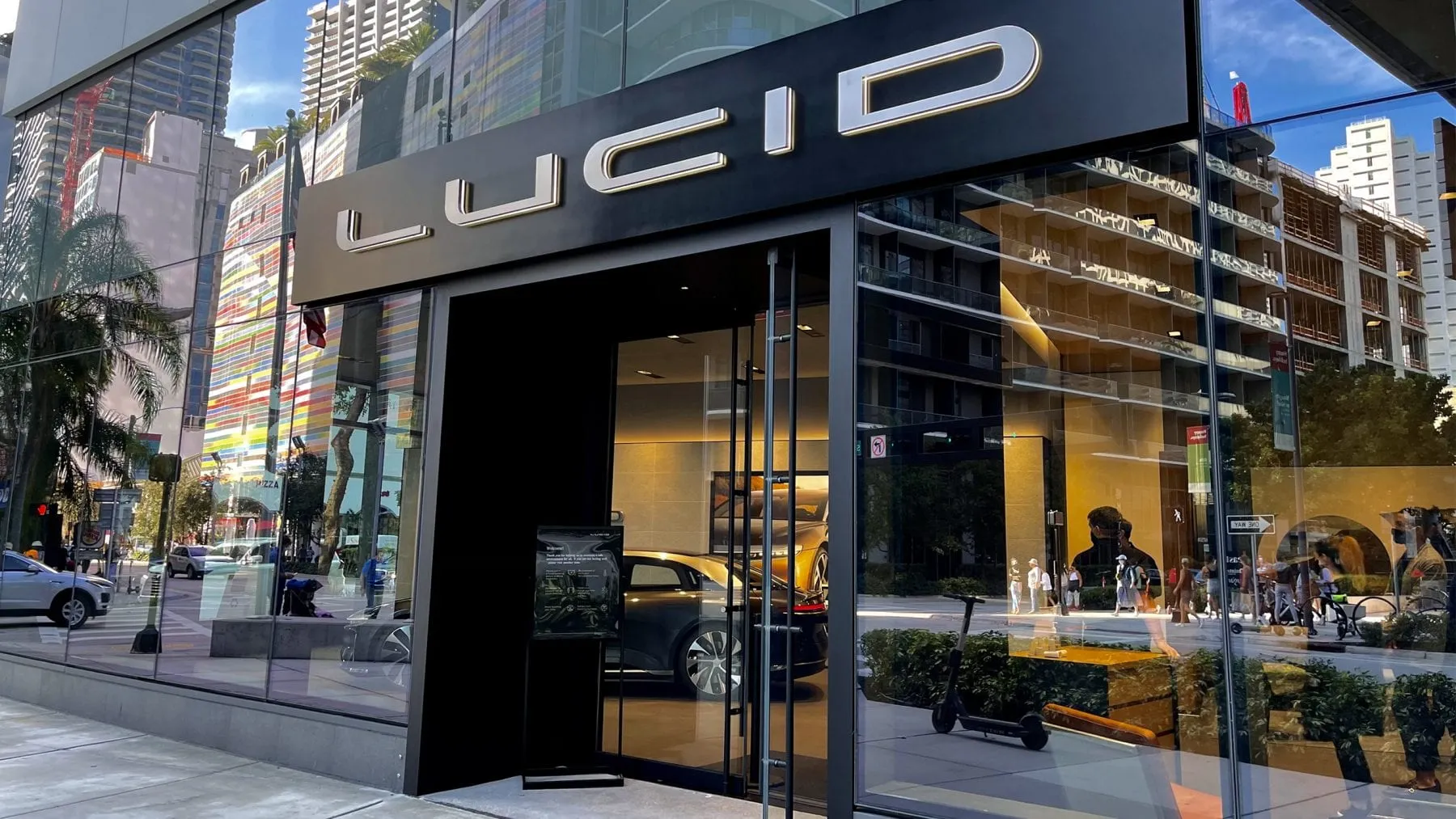The Stock of Lucid Gains on Record Shipments, but One Bear Calls Them Anemic
Lucid Group Inc. made a concise announcement on Tuesday morning, which unexpectedly caused a surge in its stock value. The announcement, encapsulated in just one sentence, disclosed Lucid's delivery statistics for the March quarter. According to the release, the company successfully delivered 1,967 vehicles while manufacturing 1,728.
Following this announcement, Lucid's shares experienced a 3% increase in trading on Tuesday.
While there isn't a consensus expectation compiled by FactSet for Lucid's production and delivery figures, CFRA analyst Garrett Nelson described the latest disclosures from the electric-vehicle company as a "mixed bag." Nelson's anticipation had been centered around 1,850 units for both production and delivery.
Despite the record-breaking quarterly shipments of 1,967 units, Nelson maintained his pessimistic "strong sell" rating on the shares after analyzing the numbers. He pointed out that although Lucid achieved a record high in quarterly shipments, it still falls short of reaching the necessary scale to reduce its unit costs. This indicates that Lucid's cash-burn rates continue to be alarmingly high, and its financial runway is visibly shortening.
In the preceding month, Lucid had announced that its majority shareholder, Ayar Third Investment Co., intended to purchase $1 billion worth of its stock.
The electric vehicle sector has encountered challenges recently, with smaller companies facing the financial strain of operating capital-intensive businesses. Meanwhile, industry giants such as Tesla Inc. are grappling with decreased consumer demand and heightened competition.
Tesla itself faced disappointment from Wall Street due to its delivery figures earlier in April. The company attributed the shortfall to various factors including challenges in the production ramp of the updated Model 3 at its Fremont factory and factory shutdowns caused by external events such as the Red Sea conflict and an arson attack at Gigafactory Berlin. Despite these explanations, a Deutsche Bank analyst suggested that issues with demand in the United States also contributed to Tesla's delivery miss.

Subscribe to our newsletter!
As a leading independent research provider, TradeAlgo keeps you connected from anywhere.








